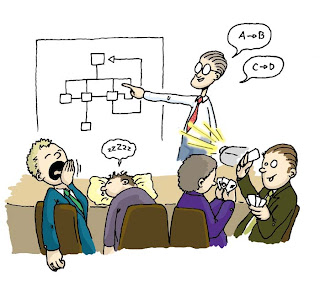 Timothy Ferris has become my favorite lunatic. Tim is the author of the book The 4-Hour Workweek, which is a book about how to escape the 9 to 5 so that you can travel the world and become a national champion in Chinese kick boxing or learn to scuba dive in Hawaii. You might find it a little bit strange that someone who loves philanthropy so much that she stays up late at night and writes a blog about her field would enjoy a book about how to escape the work world. While I do sometimes dream about leaving my overflowing inbox behind so that I can go on safari in Kenya, I am much more interested in his tips for increasing your effectiveness by focusing on the essential. Tim talks about how your work expands to fill the amount of time that you have to complete it. I got to live this lesson recently when my son got the flu and I was out of the office for 3 days. When I returned I had a full inbox and a pile of work to do. Somehow 3 days worth of work was completed in an afternoon.
Timothy Ferris has become my favorite lunatic. Tim is the author of the book The 4-Hour Workweek, which is a book about how to escape the 9 to 5 so that you can travel the world and become a national champion in Chinese kick boxing or learn to scuba dive in Hawaii. You might find it a little bit strange that someone who loves philanthropy so much that she stays up late at night and writes a blog about her field would enjoy a book about how to escape the work world. While I do sometimes dream about leaving my overflowing inbox behind so that I can go on safari in Kenya, I am much more interested in his tips for increasing your effectiveness by focusing on the essential. Tim talks about how your work expands to fill the amount of time that you have to complete it. I got to live this lesson recently when my son got the flu and I was out of the office for 3 days. When I returned I had a full inbox and a pile of work to do. Somehow 3 days worth of work was completed in an afternoon.
Focusing on the important lets you spend time doing the parts of your job that you love, ignoring the parts that are unnecessary (do you really need to get a CNN update every half an hour?), and having more time with the people and things that you care about outside of the work world. Viva la work-balance!
